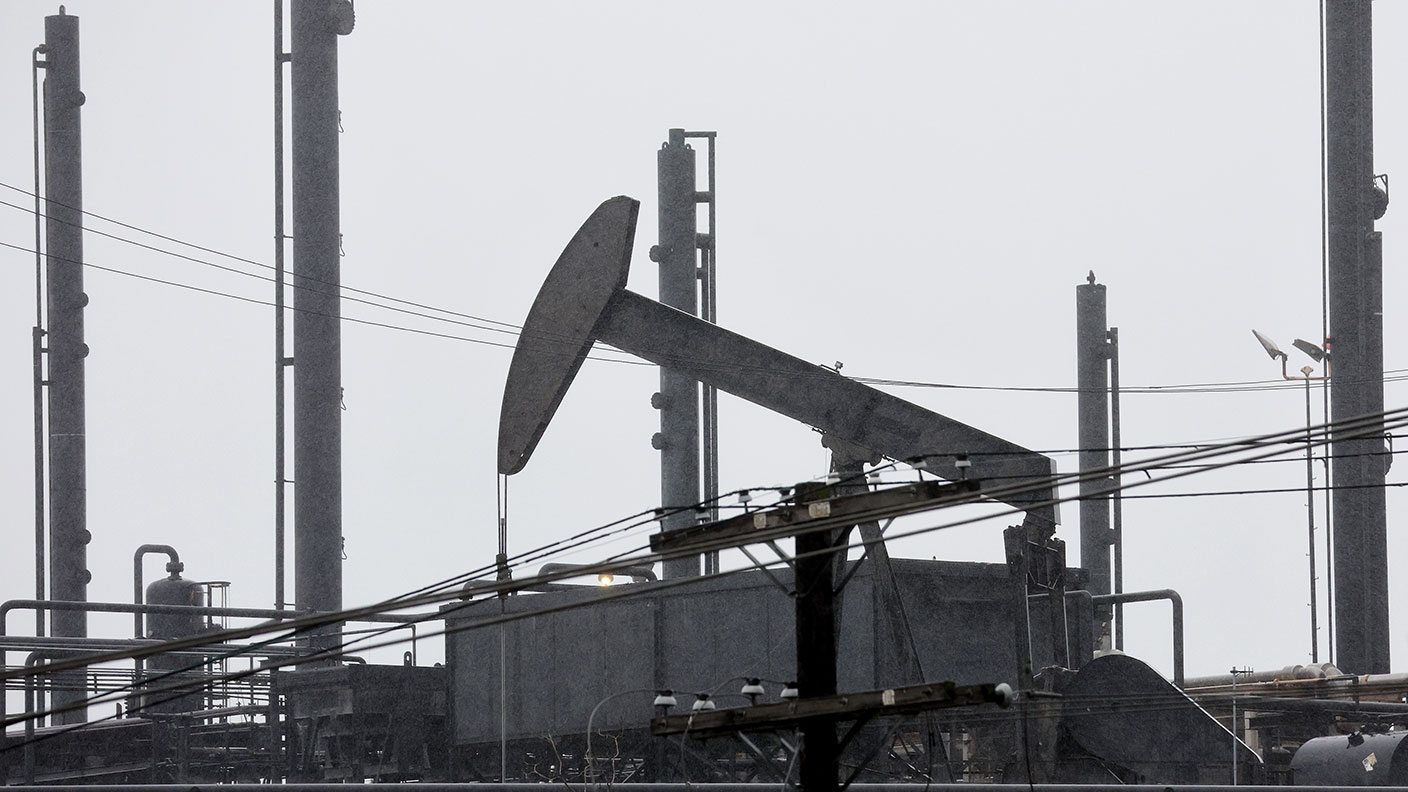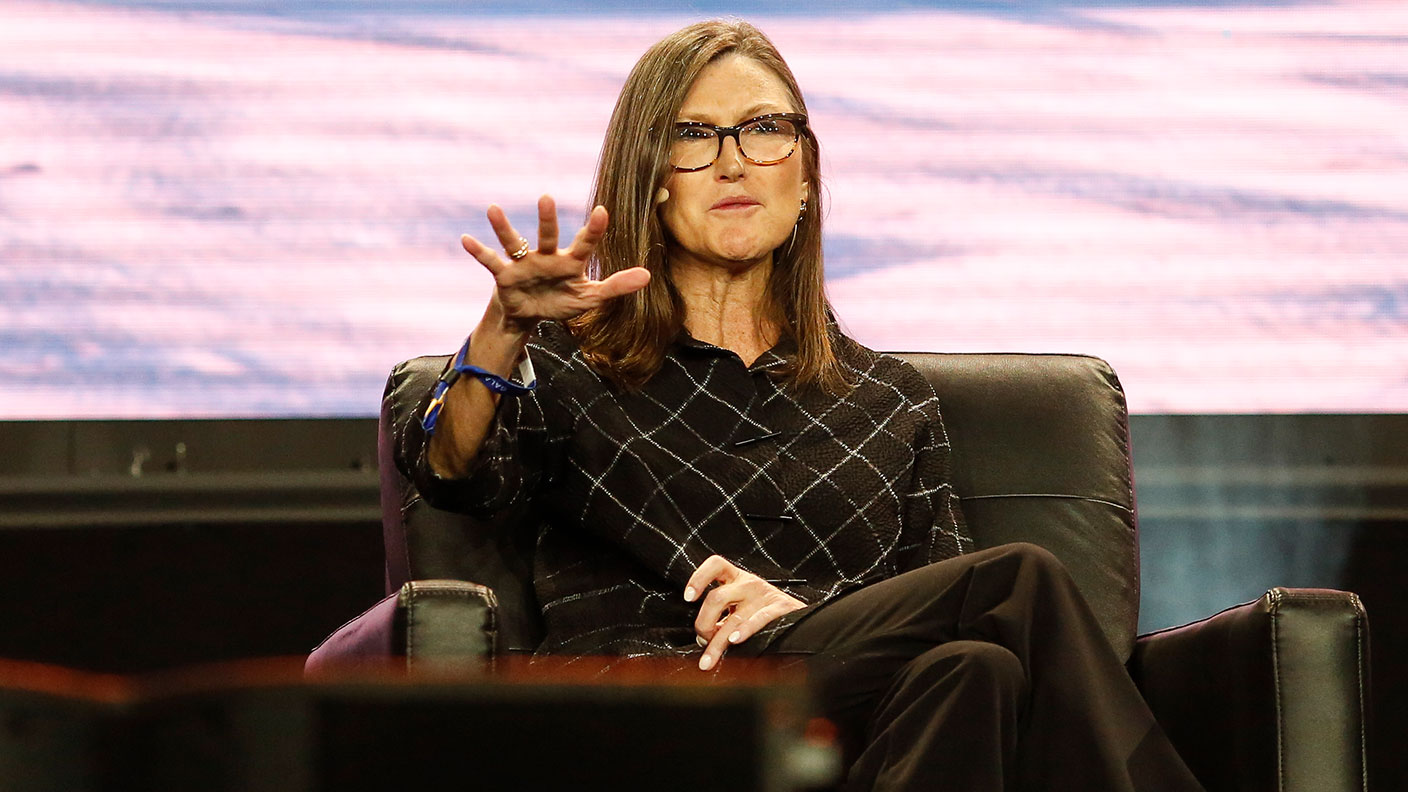What are the biggest mistakes investors make when it comes to tax?
The tax implications of an investment are something we rarely consider until after the event. That could prove to be an expensive mistake, says Dominic Frisby. Here's what you need to look out for.

Get the latest financial news, insights and expert analysis from our award-winning MoneyWeek team, to help you understand what really matters when it comes to your finances.
You are now subscribed
Your newsletter sign-up was successful
Want to add more newsletters?

Twice daily
MoneyWeek
Get the latest financial news, insights and expert analysis from our award-winning MoneyWeek team, to help you understand what really matters when it comes to your finances.

Four times a week
Look After My Bills
Sign up to our free money-saving newsletter, filled with the latest news and expert advice to help you find the best tips and deals for managing your bills. Start saving today!

I was delighted on Friday to be moderating a panel at the Moneyweek Wealth Summit on this very important subject: what are the most common tax mistakes investors make?
It is such an important question.
The tax implications of an investment are something we rarely consider until after the event. How often have you made a successful investment, only to get hammered on the tax afterwards to the point where you wonder why you bothered taking the risk in the first place?
MoneyWeek
Subscribe to MoneyWeek today and get your first six magazine issues absolutely FREE

Sign up to Money Morning
Don't miss the latest investment and personal finances news, market analysis, plus money-saving tips with our free twice-daily newsletter
Don't miss the latest investment and personal finances news, market analysis, plus money-saving tips with our free twice-daily newsletter
After the panel, several people came up and asked for a write-up, and so, by popular demand, that is the subject of today's Money Morning.
Answering your questions on tax
On the panel with me were Moira O'Neill, head of personal finance at Interactive Investor; Nimesh Shah, partner at accountants Blick Rothenberg; and George Bull, senior tax partner at accountants RSM.
Nimesh specialises in helping people manage their tax affairs when they come to sell their businesses. The most common failing he comes across is (and he put it rather more politely than I am about to) ignorance. Many intelligent, competent people individuals who have frequently built up multi-million-pound businesses often have no idea of what the tax laws are.
So when they come to sell their businesses, into which they have poured years of hard work and more besides, they fail to make the necessary tax preparations. As a result, their golden egg turns out to be significantly smaller than it might otherwise have been.
It's an attitude that Moira who, in working for low-cost broker Interactive Investor, is in many ways, at the coal-face of investment has come across all too often. "So many investors simply don't think about the tax implications of an investment when they make that investment", she says.
"They don't think about it all. They might spend many hours researching a company, studying its balance sheet and so on, looking at the fundamentals, the technicals, studying the sector, but they don't seem to factor any tax questions into their thinking."
It's madness when you think about it, and yet, as George pointed out, tax laws can be so complex needlessly so that it is no surprise people block tax out of their thinking and make so many mistakes. This was a theme that recurred throughout how unfit for purpose our tax laws are.
If you've read Daylight Robbery How Tax Has Shaped Our Past and Will Change Our Future, you'll know this is a bugbear of mine. The UK tax code is the longest in the world at ten million words it's 14 times the length of the Bible. It's more than most people read in their lifetimes. I was glad to hear this view endorsed by experienced accountants.
"Often", said George, "the laws in their current form have strayed far from their original purpose. And yet nobody does anything about it."
We opened the floor up for questions, and as you can imagine there were many of them. I'll try to summarise them here often condensing the views of the panel as a whole, in the interests of space. (Despite their very different experiences and specialisation, the panel were as often as not agreed in their conclusions).
What does the panel think are the biggest political risks to pensions right now?
This raised a lot of concern in the room. There is a lot of money sitting in pensions. Government spending is already high. And the pledges made by both the Labour and Conservative parties in the lead up to the general election show little desire to rein things in.
Given all that, it would be a mistake not to recognise that pensions are at risk of being raided. The risk from a Labour government is greater than that of a Conservative one, but wearily, the panel felt either way, changes will come, as governments try to find ways to tap that money tree.
If we're all living longer, then what's a more realistic retirement age to plan for?
It varies from individual to individual, but on average, we are going to be working until much later in life. Traditional retirement where you just switch off at a particular age is a thing of the past. We will all likely be doing freelance or contract work in our retirement, or to continue doing what we already do.
Certainly, you should plan to retire later than you might have thought ten or 20 years ago. And given that we are living so much longer, the panel agreed that the just-over-£1m cap on pension savings (via the Lifetime Allowance) was probably not a good idea.
Will a future government come after my Isa (Individual Savings Account) profits, before I get to use them?
It's not as easy as it sounds to come after Isa money. However, as with pensions, there is a lot of "untapped" money in there, so they might well come. It's not like Isa millionaires are so numerous that they can swing elections. Taxing them would not be so unpopular.
Moira made the point that becoming an Isa millionaire is no easy feat. It takes time, hard work and no shortage of skill. Why should the goalposts then be changed and they then be penalised? I agree. But that, unfortunately, is taxation for you.
What do you think will they do next in terms of taxing residential landlords?
The consensus view was that this has gone about as far as it can currently go. At least for now.
What do you think of the current IR35 contractor tax rules (HMRC seeking to demonstrate contractors should be taxed as employees)?
That Gordon Brown encouraged these vehicles as chancellor, and that the goalposts are now being changed, is verging on the outrageous. But from the government's point of view, it's all about the revenue.
Family Trusts are they worth the hassle?
In some cases, yes, but they are not the vehicles they once were.
So there we are. Those are the questions that were asked and those are the answers summarised as best I can remember them.
The main takeaway from the panel was to spend more time considering (and taking advice, if necessary) the tax implications of any investment as early as possible in the process, and making the necessary preparations to avoid paying more than you have to.
The tax implications of an investment could well change the way you carry it out. Given that we spend so much time hammering home the importance of controlling what you can in investment (in other words, minimising your cost of investing), it seems a shame to make all that effort and then find that a failure to pay attention to the tax details has left you nursing a nasty bill when you come to sell.
Daylight Robbery How Tax Shaped The Past And Will Change The Future is available at Amazon and all good bookstores with the audiobook, read by Dominic, on Audible and elsewhere. If you want a signed copy, you can order one here.
Get the latest financial news, insights and expert analysis from our award-winning MoneyWeek team, to help you understand what really matters when it comes to your finances.

-
 Can mining stocks deliver golden gains?
Can mining stocks deliver golden gains?With gold and silver prices having outperformed the stock markets last year, mining stocks can be an effective, if volatile, means of gaining exposure
-
 8 ways the ‘sandwich generation’ can protect wealth
8 ways the ‘sandwich generation’ can protect wealthPeople squeezed between caring for ageing parents and adult children or younger grandchildren – known as the ‘sandwich generation’ – are at risk of neglecting their own financial planning. Here’s how to protect yourself and your loved ones’ wealth.
-
 Are UK house prices set to fall? It’s not so simple
Are UK house prices set to fall? It’s not so simpleAnalysis Figures suggest UK house prices are starting to slide, but we shouldn’t take these numbers at face value, explains Rupert Hargreaves.
-
 Tesco looks well-placed to ride out the cost of living crisis – investors take note
Tesco looks well-placed to ride out the cost of living crisis – investors take noteAnalysis Surging inflation is bad news for retailers. But supermarket giant Tesco looks better placed to cope than most, says Rupert Hargreaves.
-
 It may not look like it, but the UK housing market is cooling off
It may not look like it, but the UK housing market is cooling offAnalysis Recent house price statistics show UK house prices rising. But John Stepek explains why the market is in fact slowing down and what this means for you.
-
 Think the oil price is high now? You ain’t seen nothing yet
Think the oil price is high now? You ain’t seen nothing yetAnalysis The oil price has been on a tear in recent months. Dominic Frisby explains why oil in fact is still very cheap relative to other assets.
-
 What can markets tell us about the economy and geopolitics?
What can markets tell us about the economy and geopolitics?Sponsored Markets have remained resilient despite Russia's war with Ukraine. Max King rounds up how reliable the stockmarket is in predicting economic outlooks.
-
 The tech bubble has burst – but I still want a Peloton
The tech bubble has burst – but I still want a PelotonAnalysis Peloton was one of the big winners from the Covid tech boom. But it's fallen over 90% as the tech stock bubble bursts and and everything else falls in tandem. Here, Dominic Frisby explains where to hide as markets crash.
-
 The market is adjusting to a new “short dreams, long reality” world
The market is adjusting to a new “short dreams, long reality” worldAnalysis As interest rates rise, things are starting to change, says John Stepek. Reality is biting back. Gone are the fanciful ideas built on hope – a business now needs a solid foundation.
-
 Are UK house prices heading for a fall?
Are UK house prices heading for a fall?Analysis UK house-price growth is slowing as interest rates rise. But interest rates aren’t all that matters for house prices, says John Stepek.